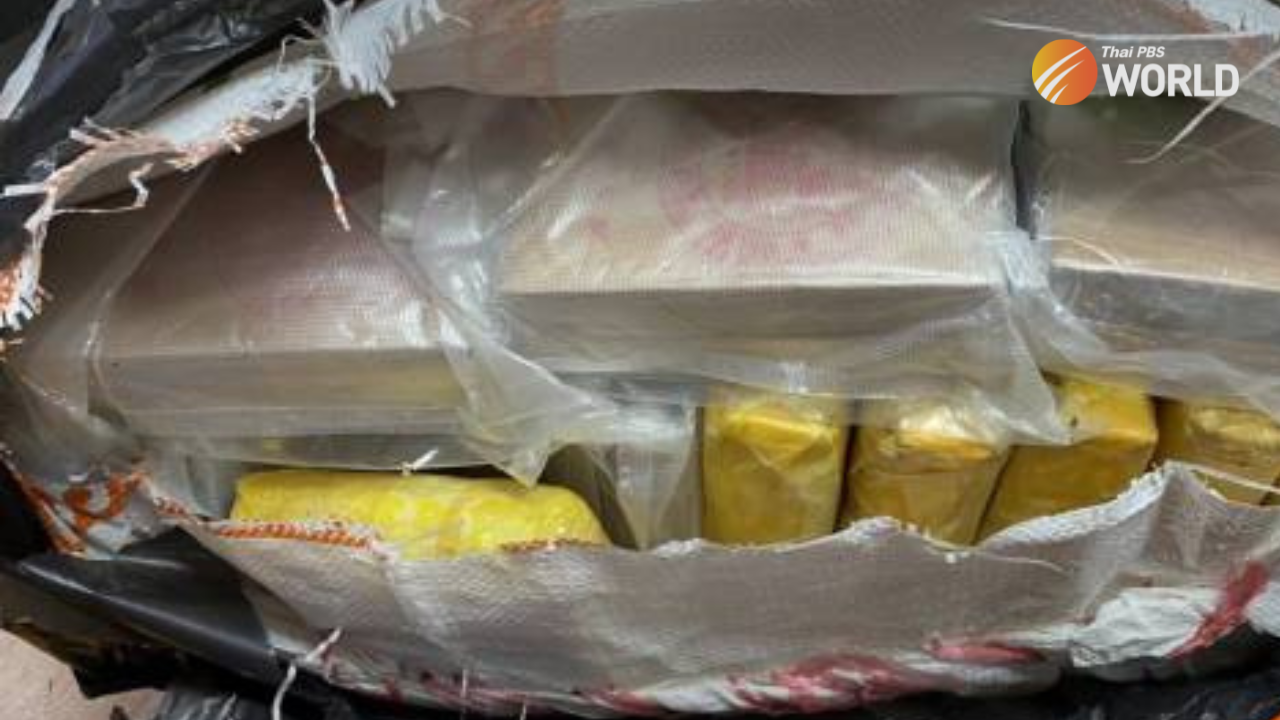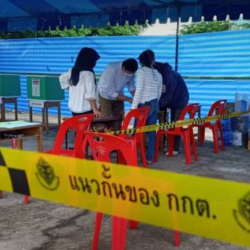Will the gentle approach rid Thailand of its drug problem?

Drug addicts sometimes commit shocking crimes in their quest for a fix, even attacking their own family members. In some cases, parents push for the arrest of their drug-crazed children and in the worst scenarios have even pulled the trigger in self-defense.
These problems continue in Thailand even though many drug abusers now get the option of “free rehabilitation” rather than criminal penalties.
New Narcotics Act
Under the Narcotics Act B.E. 2564, which was implemented in November last year, drug abusers are considered “patients” and allowed to escape penalty provided they sign up for a free rehab regime. No matter what amount of drugs a suspect is caught with, as long as they can prove they are not for sale, they will be offered treatment.
“They will only be prosecuted if they refuse treatment,” said Kosonlavat Intujunyong, a deputy director general at the Office of the Attorney General.
Thailand has one of the highest proportions of people in prison for drug offenses in the world, a legacy of decades under harsh narcotics laws.
Under the new law, drug suspects will also escape a criminal record provided they are ready to give up narcotics and enter rehab. At most, they will be subject to restrictions including a travel ban, community surveillance or a reporting schedule. In practice, drug abusers will be able to live a fairly normal life and only be required to continue their rehab.
“Many recent crimes could have been prevented if the addicts had been in rehab,” Kosonlavat said. “Drug addicts need help from their families and they should all enroll for the treatment program.”
Constant support required
Mental Health Department spokesman Dr Warot Chotipittayasunon said families should step in if drug abusers do not have the discipline to enter treatment programs themselves.
“You can call any hospital. If it does not offer drug treatment programs, the staff can recommend the nearest available place,” he explained.
Warot said there was a high chance that addicts would be able to break their habit in these treatment programs. However, he warned that they may go back to their old ways if they returned to the same environment with the same old problems.
“That’s why they need support from others too,” he said.
He added that all narcotics alter mental perception and long-term use can damage the brain. The greater the damage, the tougher it gets to give up and return to normal life, he said.
In the six months up to April 8 this year, authorities arrested 144,110 people for drug-related offenses. They also seized 272 million methamphetamine pills, 8,691 kilos of crystal methamphetamine, and 484 kilos of heroin in the same period.
Disappointingly, the number of drug abusers undergoing treatment dropped from 210,000 in 2020 to 150,000 in 2021. From last October to June this year, the number hovered at just 74,000, despite the introduction of the new law. Most people undergoing rehab are in their 20s.
Community role?
A headman in a Northeast border province said many villages under his jurisdiction were suffering the scourge of drugs. Most local drug addicts are teenagers or working-age adults, he added.
“We can tell who is abusing drugs, but there’s very little we can do,” the community leader said on condition of anonymity.
He said he encourages people to take family members who are abusing drugs to treatment programs, but his calls usually go ignored.
“Over the past year, only one person has voluntarily enrolled in a program,” he said.
He added that most drug abusers say they need methamphetamine to work longer hours and earn more to support their families. While there had been no reports of violent crimes committed by addicts under the influence, one worrying incident took place recently, he said, without elaborating.
“We alerted the police, but the person was released the next day.”
The headman believes different authorities must work together to control this problem, adding that they should also launch public awareness campaigns about the danger of drugs.
He also wants the government to review the new drug law, which he said could be exploited by traffickers claiming they are only consuming drugs, not selling them.
The community leader said action must also be taken to stop reformed addicts from returning to their old habits.
Trouble at your doorstep
A recent news report featured the story of “Bor”, a young university graduate who returned to his hometown to look after his elderly and partially paralyzed mother. However, life in the village was far from peaceful. A local junkie frequently banged on his and his neighbors’ doors late at night, hurling abuse and damaging property.
One night, the junkie broke in and held Bor’s mother at knifepoint. Though police came to her rescue, they declined to detain the attacker.
Bor said after that incident, he decided to adopt a gentle approach with the junkie. So, when the man extended his hand one day, Bor took it. The hand of friendship was a ruse and the man punched Bor in the face. Infuriated, Bor grabbed a piece of wood and chased the attacker. Eventually catching up, he reportedly hit the man once in the head, knocking him to the ground – where he lay motionless.
Bor was charged with manslaughter, found guilty in court and handed a seven-year jail term.
Fortunately, several people came forward in his defense during the appeal, including his employer, colleagues, village head and even family members of drug-crazed man. The court set him free, reducing his sentence to a suspended three-year term.
‘Poverty is root cause’
Jaded Chouwilai, director of the Women’s and Men’s Progressive Movement Foundation, says drug abuse is a widespread problem and poverty is usually to blame.
He said many people consume drugs due to financial stress or lack of work.
During the economic downturn caused by the COVID-19 crisis, Thailand’s income gap has widened and reports of drug-related crimes are becoming more frequent.
“When pushed into a corner, many people think narcotics will offer them an escape,” Jaded said. “Reformed drug addicts often go back to the habit when they are stressed.”
Rather than only relying on the new law, the government should instead tackle the core issues driving drug abuse – economic difficulties and their social impact,” he said.
“The Social Development and Human Security Ministry has barely addressed this problem. In fact, it should come up with solutions to strengthen families, because when people feel vulnerable, they are prone to take up drugs to escape their problems,” he said.






